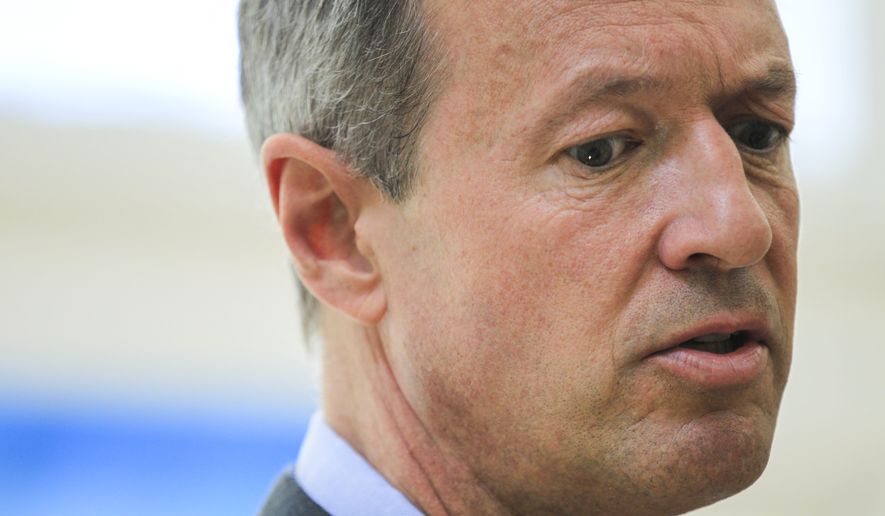Democratic presidential underdog Martin O’Malley took a swipe Friday at front-runner Hillary Rodham Clinton for mishandling the Arab Spring revolution in Libya and the subsequent deadly terrorist attack on the U.S. diplomatic mission in Benghazi.
“We must recognize that there are real lessons to be learned from the tragedy in Benghazi: Namely, we need to know in advance who is likely to take power — or vie for it — once a dictator is toppled,” the former Maryland governor said in a speech outlining his foreign policy agenda at the Truman National Security Project in Washington.
“Twitter and Facebook are no substitute for personal relationships and human intelligence,” he said in a veiled zinger at Mrs. Clinton, who has prided herself on utilizing social media.
Mrs. Clinton was secretary of state in 2011 when she strongly backed U.S. military support of the rebellion that toppled Libyan dictator Moammar Gaddafi. The country later devolved into a Islamic militant hotbed, leading to the 2012 attack in Benghazi that killed U.S. Ambassador J. Christopher Stevens and three other Americans, as well as helping fuel the rise of the terrorist army that calls itself Islamic State.
In the speech, Mr. O’Malley said that “new times require new relationships and better intelligence,” echoing his argument that he represents a new generation of leadership.
Mr. O’Malley has sharpened his attacks on his rivals as he’s slipped in the polls, though he didn’t mention Mrs. Clinton by name in the speech.
He focused on the death of Mr. Stevens, whose killing spurred questions about how Mrs. Clinton and the Obama administration’s actions before and after the attack. Those questions continue with an investigation by a House special committee.
“We must recruit and retain a new generation of talented American diplomats. And we must give them the tools to identify and engage with a new generation of leaders from different walks of life — often in hostile environments where we lack historic ties; where we lack relationships,” Mr. O’Malley said.
“That was the work that Ambassador Chris Stevens was about,” he said. “He gave his life reaching out to those emerging from the rubble of Gaddafi’s dictatorship.”
• S.A. Miller can be reached at smiller@washingtontimes.com.




Please read our comment policy before commenting.